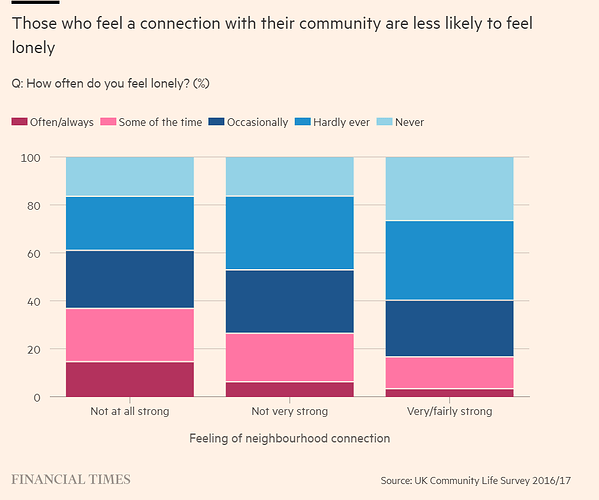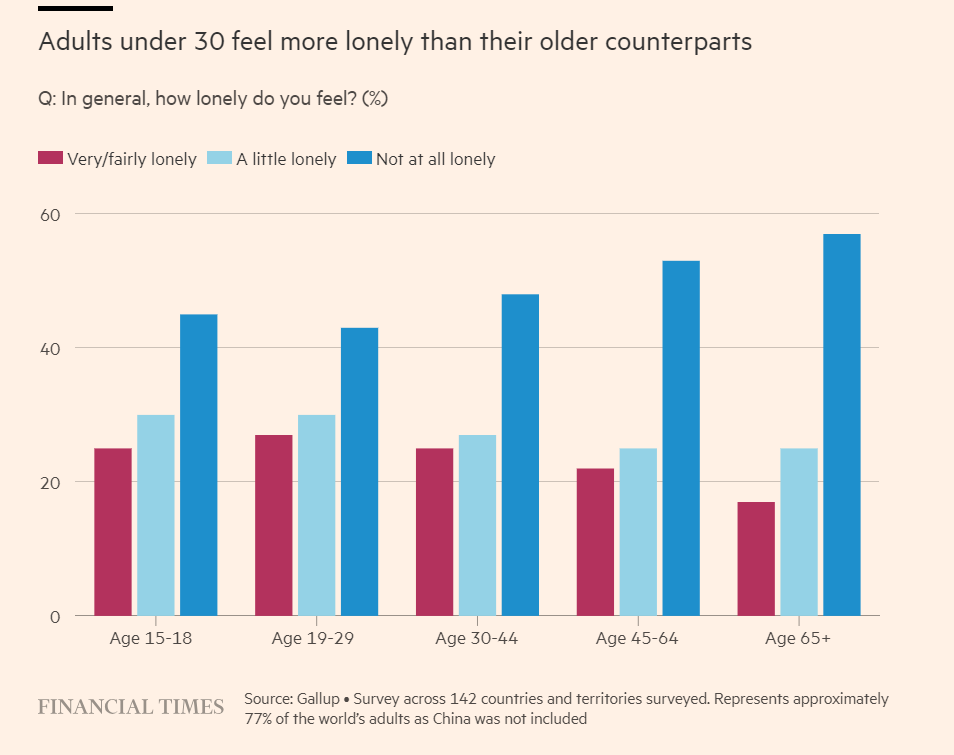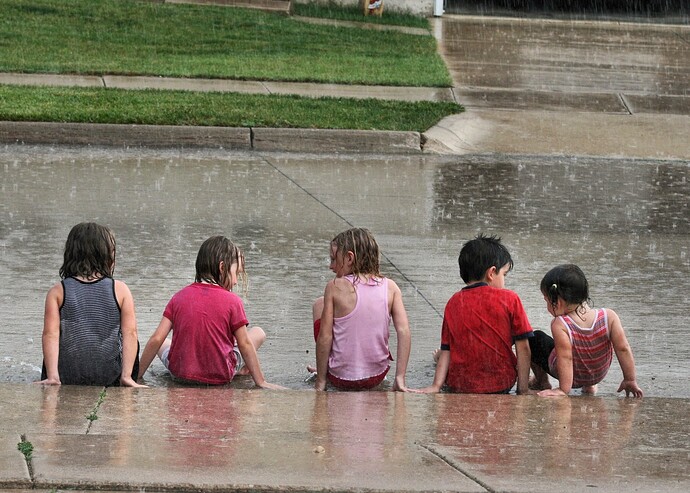It’s no secret that loneliness is on the rise & that it’s actually becoming an epidemic. I’ve written about it on our blog:
This forum is also full of discussions how technology and social media, while connecting people digitally, may contribute to a lack of real-world social skills and a decrease in communal activities, exacerbating feelings of loneliness.
Recently, I came across an interesting article in the Financial Times which explores the rise of friendship apps like Timeleft as innovative solutions to combat the growing issue of loneliness and social isolation, particularly emphasized by the pandemic’s aftermath.
Normally, I would cringe at the thought of ‘another app to meet people,’ but something about Timeleft intrigued me. The app organizes meals for groups of strangers and aims to create real-world connections and combat loneliness by facilitating “the magic of chance encounters.”
Here’s the link to the article: Can a friendship app cure loneliness?
What do you guys think? Would you try an app like Timeleft? Do you think it’s a copout for actually going out into the real world to meet people? Or is the complexity of addressing loneliness much broad and suggesting that while apps like Timeleft may offer a new avenue for connection, the true foundation of combating loneliness lies in fostering meaningful relationships and quality interactions.
I can’t wait to hear your thoughts.
1 Like
Yes. ( imo )
A lot of people these days are conveniënt, thinking that technology will solve everything.
It can do a lot, but not solving loneliness. People have to go out more, disconnecting, less depending from tech/screentime, and go out. Whether to a activity, team sport clubs, libraries, out in the open. A wise Guru once said: “when you are lonely, then you are a bad company to yourself”
There is a kind of thruth in it. People get bored when there is nothing to do for a moment, so they turn on music, watch movies, rubbing the screen of your phone…just to be occupied.
You can be alone, but it doesn`t mean you have to be lonely.
( btw…i didn`t read the article )
2 Likes
The stats on loneliness (cited in the article) were quite shocking, TBH…
The author also quotes some stark numbers: in the US, one in five millennials say they have no friends at all; in the UK, more than one in 10 people across all ages said they had no close friends and more than a quarter said they had no best friends.
She does admit that she thinks technology is part of the problem, making people “ill-skilled in forging connections in the real world” and moving everyday communal experiences — shopping, yoga, the cinema — into our homes. We are now less likely to be members of organizations from trade unions to churches etc.
We ( the dinosaur people  ) still know how to make contact with other human beings.
) still know how to make contact with other human beings.
Because we were learned to do so, otherwise, you had no friends. But in our timeline
(in the 80s/ 90s ) we went outside every opportunity we had… seldom stayed in house…only when it was raining heavy. 
2 Likes
Speak for yourself  LOL I was OUT, even if it was raining, snowing, sleeting. The more time out of the house the better.
LOL I was OUT, even if it was raining, snowing, sleeting. The more time out of the house the better.
2 Likes
Generally technology makes communication faster AT expense of quality (disguise of IT wall, quicker reaction with less caring for other side, narcisoid tendency to be competatively better then unknowns etc.)
In same way dating apps are just quick casual sex finder, but not much more in 95 percent cases. Sometimes I hear people were matched there, but I believe its more to their personnas then app. If they met any other way they would “click”
Also dating apps are looks oriented neglecting important aspecsts of interests, persinality, habits etc.
There is a hook to of keeping males on dating apps and not making them really happy
1 Like



